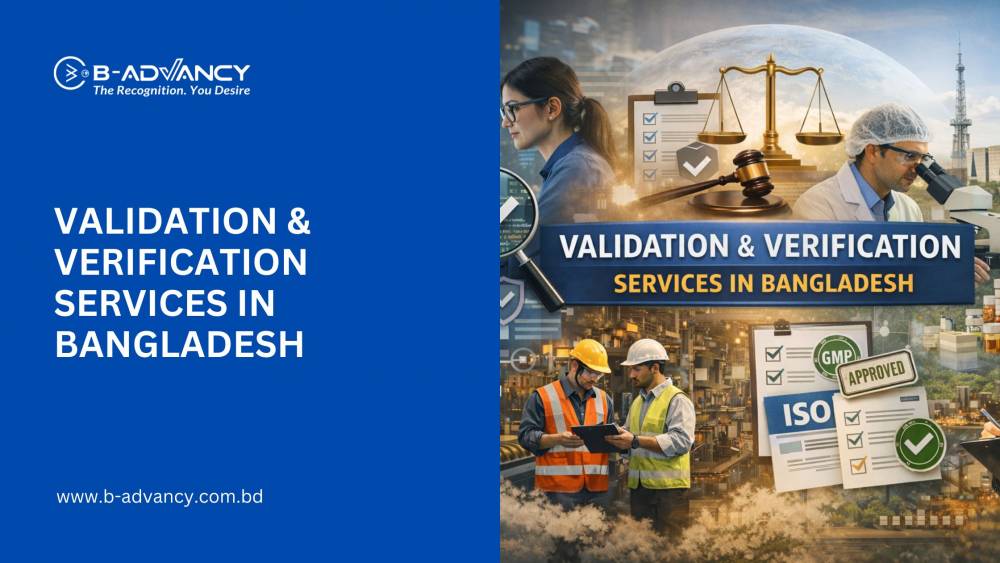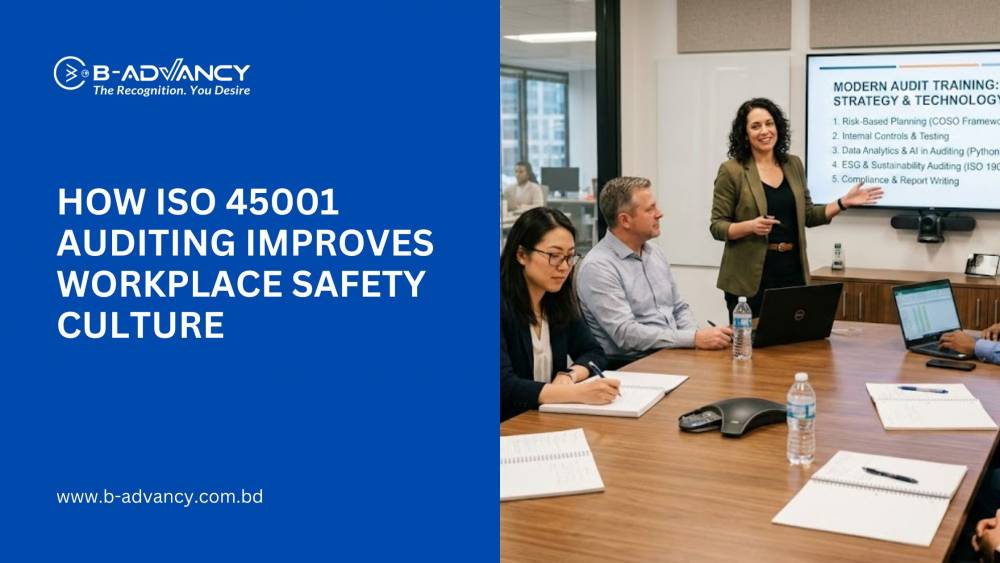In an era where patient safety, service quality, and operational efficiency are paramount, healthcare providers in Bangladesh face increasing pressure to adhere to the highest standards. One of the most effective ways to achieve and maintain these standards is through ISO certification, a globally recognized benchmark for quality and excellence. In this blog, we will explore the significance of ISO certification for healthcare industries in Bangladesh, the specific ISO standards that are applicable, the benefits they offer, and how you can begin your certification journey with B-ADVANCY Certification Limited.
What is ISO Certification and Why is it Important for Healthcare Industries?
ISO certification is an endorsement from the International Organization for Standardization (ISO), confirming that an organization meets one of its international management system standards. For healthcare industries, ISO certification serves as a testament to their commitment to patient care, safety, and operational efficiency. In Bangladesh, where the healthcare sector is rapidly growing and evolving, ISO certification can be a critical differentiator that enhances trust among patients, regulators, and stakeholders.
Healthcare facilities such as hospitals, clinics, diagnostic centers, and medical laboratories can greatly benefit from ISO standards. These standards help in establishing systems that ensure consistent quality, improve patient outcomes, and minimize risks. By adopting ISO standards, healthcare providers in Bangladesh can also align with international best practices, which is particularly important as the country aims to expand its medical tourism sector.
Key ISO Standards for Healthcare Industries
For healthcare providers in Bangladesh, several ISO standards are essential for ensuring quality, safety, and efficiency:
ISO 9001:2015 - Quality Management System ISO 9001:2015 lays the foundation for a Quality Management System (QMS). In the healthcare sector, this standard aids in creating processes that ensure the consistent delivery of high-quality care. It emphasizes patient satisfaction, continuous improvement, and effective management of healthcare operations.
ISO 13485:2016 - Medical Devices Quality Management System ISO 13485:2016 is tailored for organizations involved in the design, production, installation, and servicing of medical devices. This standard ensures that medical devices meet both customer and regulatory requirements, which is crucial for maintaining patient safety and ensuring product effectiveness.
ISO 15189:2022 - Medical Laboratories Requirements for Quality and Competence Management System ISO 15189:2022 specifies the requirements for quality and competence in medical laboratories. It ensures that laboratories provide accurate and reliable results, meeting both regulatory and customer expectations.
ISO 27001:2022 - Information Security Management System With the increasing digitization of patient data, safeguarding information is critical. ISO 27001:2022 helps healthcare organizations establish robust Information Security Management Systems (ISMS) to protect sensitive patient information from cyber threats and data breaches.
ISO 22716:2007 - Good Manufacturing Practices (GMP) ISO 22716:2007 outlines the Good Manufacturing Practices (GMP) for the cosmetics industry. Although primarily focused on cosmetics, the principles can also be applied to ensure the quality and safety of healthcare products.
Benefits of ISO Certification for Healthcare Industries in Bangladesh
Enhanced Patient Safety and Care Quality
ISO certification helps healthcare providers establish and maintain processes that ensure high standards of patient care. This leads to better patient outcomes, higher satisfaction rates, and a stronger reputation in the community.
Operational Efficiency and Cost Savings
By implementing ISO standards, healthcare facilities can streamline their operations, reduce waste, and minimize errors. This not only improves efficiency but also results in cost savings, which can be reinvested in patient care and facility improvements.
Compliance with Regulatory Requirements
ISO standards provide a structured approach to meeting both local and international regulatory requirements. This is particularly important in healthcare, where compliance is critical to avoid legal issues and ensure continuous operation.
Increased Marketability and Patient Trust
ISO certification is an internationally recognized mark of quality. Healthcare providers with ISO certification are often viewed as more trustworthy and reliable, which can attract more patients, as well as partnerships with international healthcare organizations.
Risk Management and Continuous Improvement
ISO standards encourage a proactive approach to identifying and managing risks, whether related to patient safety, operational efficiency, or data security. This continuous improvement mindset helps healthcare organizations stay ahead of potential issues.
Steps to Achieve ISO Certification for Your Healthcare Facility
Achieving ISO certification involves several key steps:
Initial Assessment and Gap Analysis
Start by evaluating your current processes against the requirements of the relevant ISO standard. Identify gaps and areas that need improvement to meet the certification criteria.
Develop and Implement a Management System
Create and implement a management system that complies with the chosen ISO standard. This may involve process documentation, setting objectives, and staff training.
Internal Audit and Management Review
Conduct internal audits to ensure your management system is effective and compliant. Regular management reviews are essential to address any issues and ensure continuous improvement.
Select a Certification Body
Choose a reputable certification body, such as B-ADVANCY Certification Limited, to conduct an external audit. Thorough preparation for this audit is crucial to demonstrate compliance with the ISO standard.
Achieve Certification and Commit to Ongoing Improvement
After passing the audit, you will receive ISO certification. It's important to maintain and improve your management system to retain certification and continue benefiting from it.
Challenges in Implementing ISO Standards
While ISO certification offers numerous benefits, implementing these standards can pose challenges, including:
Resistance to Change
Healthcare staff may resist changes to established processes. Effective communication and training are essential to help them understand the benefits and importance of these changes.
Cost and Resource Allocation
The costs associated with certification—such as consulting, training, and auditing—can be significant. However, the long-term benefits of ISO certification often outweigh these initial expenses.
Documentation and Process Management
Maintaining detailed documentation can be time-consuming but is crucial for successful certification and ongoing compliance.
B-ADVANCY Certification Limited can assist you in navigating these challenges with expert guidance, ensuring a smoother and more efficient certification process. To contact them: Email: bangladesh@b-advancy.com | Call: +8801612264559
Conclusion
ISO certification is more than just a credential for healthcare organizations in Bangladesh; it is a strategic investment that can significantly enhance the quality of care, operational efficiency, and marketability. By aligning your processes with internationally recognized standards, your healthcare facility can achieve consistent service quality, improve patient safety, and gain a competitive advantage in both local and international markets. Although the certification journey may present some challenges, the long-term benefits far outweigh the initial efforts.





































































































































































































